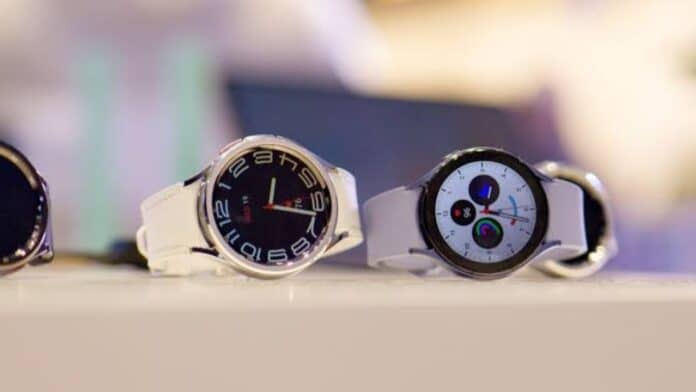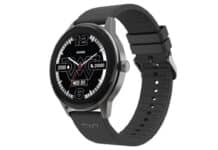
The smartwatch market is abuzz with rumors of a potential game-changer from Samsung: the Galaxy Watch 7. If Winfuture’s journalist & tipster Roland Quandt is to be believed, Samsung coming with yet another chip upgrade for the Galaxy Watch 7 series launching later this year.
The next generation Samsung Galaxy Watch 7 models will probably be powered by an Exynos 5535 processor. Although Exynos 5535 CPU is the internal codename, this new chipset is expected to be sold with the name Exynos W940. Considering the familiarity that Samsung’s smartwatches have given us thus far, this surprises us a little bit.
Also, Read Samsung Galaxy S24 Series: Galaxy S24, S24+, and S24 Ultra India Price
Why This Matters: Performance and Power Efficiency Take Center Stage
While annual chipset upgrades might be commonplace in the smartphone world, wearables haven’t followed the same trajectory. Their demands are inherently different, and advancements often occur on a longer timeline. So, why the buzz around the Watch 7’s rumored chip?
The answer lies in the potential benefits. Newer chipsets typically translate to enhanced performance. Imagine smoother app launches, faster data processing, and a more responsive user experience. But that’s not all. New chips often boast improved power efficiency, leading to longer battery life – a crucial aspect for wearables often criticized for their limited juice.
Also, Read Samsung Galaxy S24 Series: Galaxy S24,S24+, and S24 Ultra launched
Addressing a Key Pain Point: Battery Blues No More?
Battery life has long been a sticking point for smartwatch users. Even flagships like the Galaxy Watch 6 struggle to offer multi-day endurance. The rumored Exynos W940, if its efficiency claims hold, could be a game-changer. Imagine tracking your workouts, monitoring your sleep, and staying connected throughout the day without the constant worry of a dying battery.
Beyond the Chipset: What Else Could the Watch 7 Offer?
Although the processor label does not generate that much interest, separate rumors (via TechSpot) hinted that Samsung is working on a second-generation 3 nm fabrication process. It is expected the Samsung Galaxy Watch 7 range may be the first to be equipped with a chip based on this new process.h
Also, Read Samsung Galaxy Watch 6 Series with Fall Detection launched in India
Also, we can expect some design tweaks and software refinements, but major design overhauls or groundbreaking new features seem unlikely. The focus, it appears, is on refining the core experience with a powerful and efficient heart.
A smaller node will increase the transistor count on the chip while also increasing the power efficiency to subsequently improve battery life on the Galaxy Watch 7. This alone would probably solve one of the major shortcomings of the Galaxy Watch 6, which had a bang average battery life when compared to previous Galaxy smartwatches.
The Verdict: A Promising Leap Forward, But Wait and Watch
While the actual details remain under wraps, whispers of a major chipset upgrade have sent tech enthusiasts into a tizzy. A potentially faster, more efficient, and longer-lasting smartwatch is enough to pique anyone’s interest.
Also, Read Google Pixel Watch 2 with Skin Temperature Sensor Launched in India
However, it’s crucial to remember that these are just rumors. Until Samsung unveils the Watch 7 officially, we should approach the speculation with a healthy dose of skepticism. That said, the possibility of a significant chipset upgrade is undoubtedly intriguing.
If the rumors materialize, the Watch 7 could mark a noteworthy leap forward in smartwatch technology, pushing the boundaries of performance and power efficiency. So, stay tuned, tech enthusiasts, for the official reveal, and prepare to be wowed – or perhaps left wanting more.
For the latest tech news, follow Hogatoga on Twitter, Facebook, and Google News For the latest videos tech-related, Subscribe to our YouTube Channel and Newsletter.















